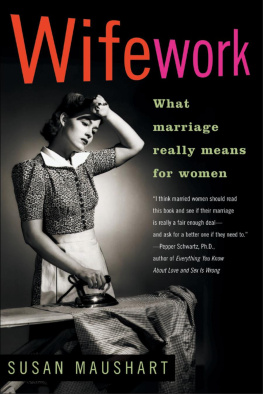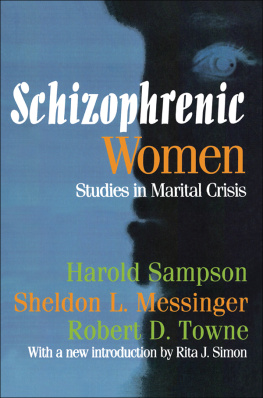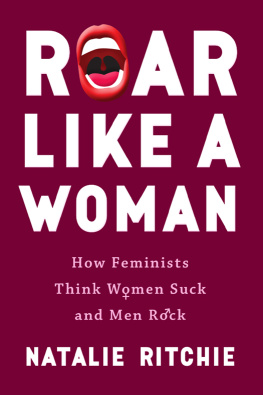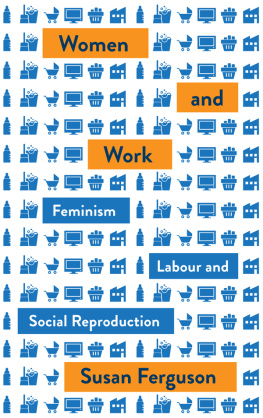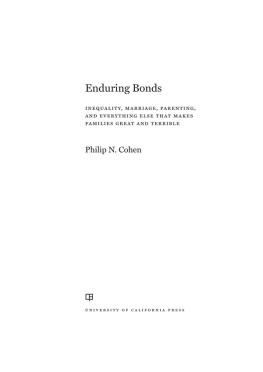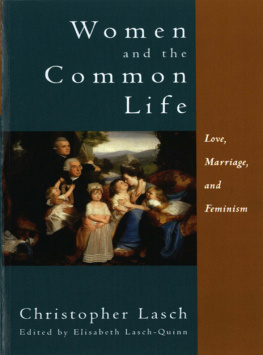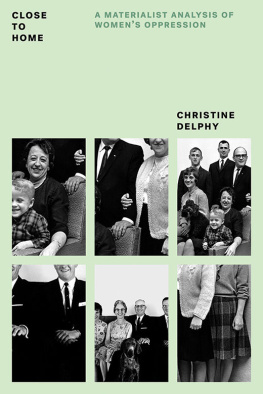Heterosexual Women Changing the Family
Feminist Perspectives on The Past and Present Advisory Editorial Board
Lisa Adkins, University of the West of England, UK
Harriet Bradley, UK
Sara Delamont, University of Wales College of Cardig UK
Mary Evans, University of Kent at Canterbury, UK
Gabriele Griffin, Nene College, UK
Jalna Hanmer, University of Bradford, UK
Maggie Humn, University of East London, UK
Sue Lees, University of North London, UK
Diana Leonard, University of London, UK
Terry Lovell, University of Wanvick, UK
Maureen McNeil, University of Birmingham, UK
Ann Phoenix, University of Birmingham, UK
Caroline Ramazanoglu, University of London, UK
Sue Scott, University of Munchester, UK
Janet Siltanen, University of Edinburgh, UK
Dale Spender, Australia
Penny Summerfield, University of lancaster, UK
Martha Vicinus, University of Michigan, USA
Claire Wallace, University of lancaster, UK
Christine Zmroczek, Roehampton Institute of WE, UK
Heterosexual Women Changing the Family
Refusing to be a Wife!
Jo VanEvery
Keele University
Jo VanEvery, 1995
All rights reserved. No part of this publication may be reproduced, stored in a retrieval system, or transmitted, in any form or by any means, electronic, mechanical, photocopying, recording, or otherwise, without permission in writing from the Publisher.
First published 1995
by Taylor & Francis
2 Park Square, Milton Park, Abingdon, Oxon, OX14 4RN
270 Madison Ave, New York NY 10016
Transferred to Digital Printing 2007
Library Catalogue Record for this book is available from the British Library
ISBN 0 7484 0283 7
ISBN 0 7484 0284 5 (pbk)
Library of Congress Cataloging-in-Publication Data are available on request
Series cover design by Amanda Barragry.
Typeset in 11/13pt Times by Solidus (Bristol) Limited
Publishers Note
The publisher has gone to great lengths to ensure the quality of this reprint but points out that some imperfections in the original may be apparent
For Tara and Joh who introduced me
to the possibility of living differently
Contents
: Division of child-care in single mother living arrangements
: Division of activities related to eating in voluntarily childless heterosexual couples
: The division of cleaning in voluntarily childless heterosexual couples
: The division of child-care in heterosexual couples with shared roles
: The division of child-care in multiple adult arrangements
: The division of activities related to eating in multiple adult arrangements
: The division of cleaning in multiple adult arrangements
: Strategies for anti-sexist child-rearing
: The choices of single mothers
: The choice to reverse roles
: Support for single mothers
: Support for heterosexual couples with children with shared roles
: Distribution of systems of management by type of arrangement
: Distribution of systems of management by existence of children
: Distribution of systems of management by marital status
: How those with independent management systems deal with unequal incomes
This book addresses two audiences. On the one hand, I embarked on this research motivated by a personal desire to know more about the ways that women were putting feminist ideals into practice in their personal and domestic lives. In part, I wanted to provide a resource for other women, like myself, who wanted to make use of the experience of others in their attempts at non-oppressive living. Because I chose to do this research in the context of a higher degree in sociology, I wanted (and needed) to address some sociological questions. I have tried to do this in a way that does not make my research inaccessible to the non-academic reader. To this end, there is only a brief discussion of the methods used in the main text. For those who are interested a more detailed treatment of these issues can be found in an appendix. I have also tried to present the information gained in the interviews in a way which both contributes to my analysis and provides information for other women about the details of these living arrangements. This detail is often summarized in tables.
I would like to thank the following people for their part in making this book possible. I am sure to have left someone out but the process of research and writing is dependent on so many that this may be inevitable. I apologize for any omissions. Linda Cardinal encouraged me to pursue postgraduate study. Mary McIntosh agreed to supervise the project and provided initial encouragement, some of the supervision and advice. Lydia Morris took over the supervision of the project when Mary went on leave. Her attention to detail and commitment to the task was invaluable. Suzanne Desaulniers, and Marion Coleman and Jana Walters have allowed me to use unpublished material. Mary Girling, Brenda Corti, and the secretaries in the Department of Sociology have provided assistance on numerous occasions. The staff and students in the Essex University Sociology Department provided a supportive environment in which much of the work was done. Thanks, also, to Comfort Jegede at Taylor & Francis for encouraging me to turn the thesis into a book and an anonymous reader for some helpful suggestions.
Financial assistance was provided by my parents, John and Barbara VanEvery; my godmother, the late Johanna Murray; the Committee of Vice-Chancellors and Principals, in the form of an Overseas Students Award; and the University of Essex, Department of Sociology Fuller Fund, in the form of assistance with travel expenses. I would also like to thank the Guardian Womens Page for including the appeal for participants in their Bulletin.
I would especially like to thank my friends for their encouragement, long discussions, book references (and loans), and emotional, practical and political support. In particular, Joanne Springthorpe, Becky Nixon, Mat Paterson, Mark Rogers, Nikki Craske and Pingla Udit. For the original inspiration and my desire to create an alternative family, I thank Tara Jones and Johanne Bkrubk who once shared meals, drudgery, laughter and tears. Last but not least, I thank all those who participated in the study (and the many more who responded but were not included) without whom there would be no book.
Family and Womens Oppression
In September 1982, at the age of 18, I left Nova Scotia to attend the University of Ottawa. In my first year I shared a room in the halls of residence. I remember talking to my roommate about our plans for the future, and her characterization of mine as little girls dreams. I had accepted my mothers values and, although I sought a university degree, expected to get married, have children and give up my career/job in order to raise those children.
During the course of my undergraduate studies, I took a year out and changed courses from chemistry to sociology. I took some courses on women and gender inequalities, and began to read feminist analyses of society. Like many other women who became interested in feminism, I began to question the character of my personal relationships. By this time I was sharing a flat with two other women. We ate an evening meal together and split the housework in an informal but equal way. We were friends but our close emotional relationships were not limited to the residential group. I felt that I would like to live in this sort of arrangement in the long term but I realized that the other two women saw it as a temporary arrangement while we were at university. We all knew that one day we would grow up, get married and have kids even if we now expected to have careers as well.


